The American singer-songwriter recounts the inspiration and creation of her most widely recognised song, which she still sings at 67
We’ve been in this game far too long to think that anybody is a purely natural talent. It takes a lot of hours, effort and determination to get to the point where anyone can be described as such. Janis Ian might just be the exception that proves the rule, as highlighted by the fact that Hair Of Spun Gold the first song she ever wrote aged 12, made it onto her debut album. Subsequently inspired by her time spent in the Greenwich Village folk scene, Ian’s career has remained consistently excellent with a run of four albums in the 70s (Stars, Between The Lines, Aftertones and Miracle Row) up there with the very best.
Even with such an illustrious career, At Seventeen remains the pinnacle. The standout track from Between The Lines, it matches a bossa nova melody with a lyric about the pains of growing up in a society obsessed with beauty queens. Thankfully, the success of the song means that Ian, who sung of, “Valentines I never knew,” has subsequently been inundated with cards on an annual basis for over four decades now – so much so that she asks that people make a donation to charity rather than send her a Valentines these days…
Read more ‘How I wrote’ features
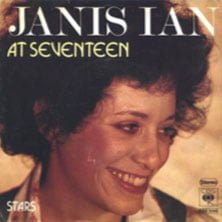
Released: 15 August 1975
Artist: Janis Ian
Label: Columbia
Songwriter: Janis Ian
UK chart position: –
US chart position: 3
“I was sitting at Mum’s dining room table one day; she was at work and I was reading the New York Times magazine section and there was an article by a young woman about being a debutante. She said that she thought her coming out ball would solve everything. Suddenly, magically, she would meet a boy, get married, have a white picket fence and life would be perfect. The song started off then as ‘I learnt the truth at eighteen,’ and I had the guitar in my hand and I was playing this little figure in G with the capo on, I think I’d been listening to Astrid Gilberto that week. ’Eighteen’ didn’t scan so I changed it to, ‘I learned the truth at seventeen,’ and then it’s a logical thing to say, ‘That love was meant for beauty queens.’ The first verse is pretty logical – ‘High school girls with clear-skinned smiles,’ that was my own experience. I always thought if my skin would clear up then everything would be fine.
“The first verse took about a week, and the bridge. I then realised that I didn’t have a chorus and I thought, ‘Fuck me, yet again I’m not writing a chorus.’ I didn’t learn to write choruses until I moved to Nashville in my mid-30s. Then I got really scared of the song because it’s very brutal to sing, especially if you’re the writer and 20 – talking about your skin and not getting asked out on dates, it was humiliating and it scared me, so I set it aside for a while.
“I came back to it a month later. I remember saying, ‘I’m either in this or I’m not, and if I’m in it then I’m in it all the way.’ That became a mantra for the rest of my songwriting career because you have to be brave. Brave enough to trust your instincts and make music that might be uncomfortable but that your heart knows is right. So I decided to be brave but I put it away again for a month or two and thought about what to do. I didn’t have much craft at that point. I’d always gone on instinct, but this one I really had to think about. I’d already decided that I was never going to sing it in public so I thought I might as well just go for broke. That’s when the narrator steps out and says, ‘To those of us who knew the pain,’ and talks about it and says it was long ago.
“The line that I love the most in that song is, ‘To ugly duckling girls like me.’ That wrapped the song up, ugly ducklings become swans, so maybe there’s a chance. Whenever people say to me that it’s a depressing song I say that they haven’t listened to it.
“At Seventeen just felt right but it also felt so familiar that I called three friends to make sure that they hadn’t heard the melody before. I thought maybe I was on top of something. For the first three months, I sang it with my eyes closed because I thought everyone would be laughing at me and making mean comments, but they were crying, it was amazing. There are some songs that you write which transcend the singer and the listener and goes straight into the heart and they change people lives. I say that in all humility.
“To still sing a song like At Seventeen and watch people’s reactions, it’s humbling and it’s also really gratifying because when I wrote it I didn’t think that one day I’d be 67 and still singing it, I was hoping to make it to 25!”
For all Janis Ian news, go to janisian.com
Read more ‘How I wrote’ features

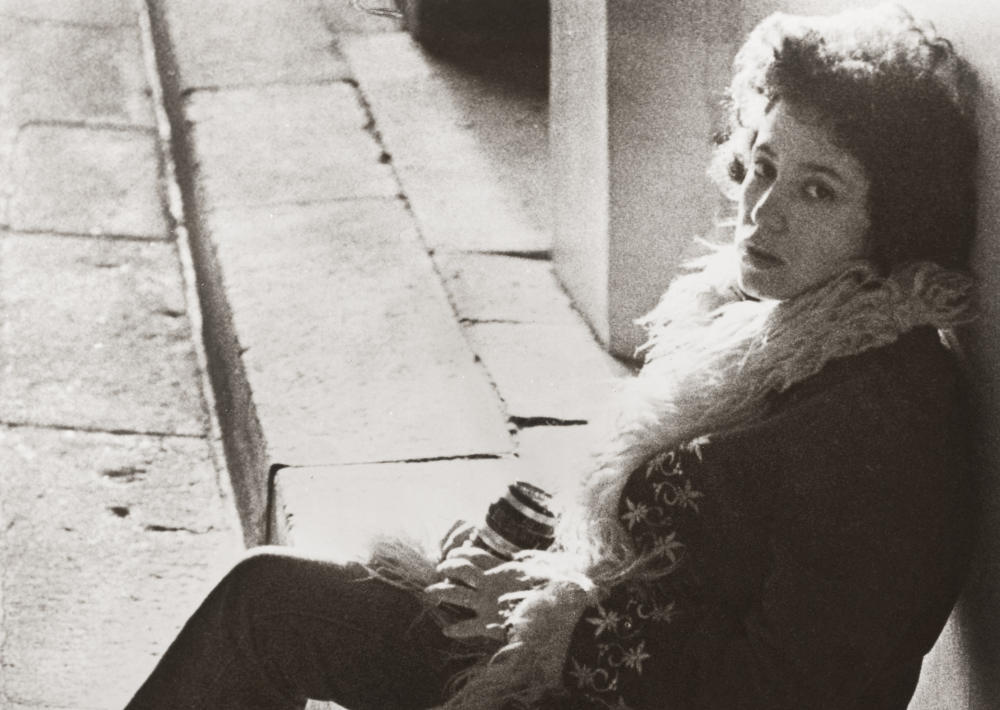


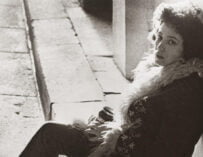
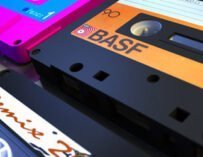
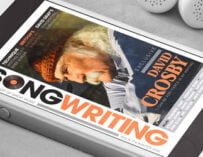



























I fell in love with Ms. Ian after I heard Socities Child, the song touched me because I was kind of living it. Fast forward to At Seventeen, and while the song was about a young girl and at that age I was kind of a high school jock, I related to the song because I always felt like I was on the outside looking in, still do at times.